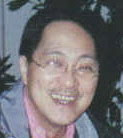GOTCHA, Published in The Philippine Star, Monday, January 21, 2008
Malacañang spokesmen gloat that Noli de Castro’s triumph against Loren Legarda’s poll protest is also Gloria Arroyo’s victory. To some extent they’re right. Legarda, according to the Supreme Court, failed to prove her charge of fraud in the Lanao del Sur canvassing in 2004. Her running mate Fernando Poe Jr., before his untimely death, had used the same evidence in claiming to be cheated by Arroyo, de Castro’s partner. So if the Tribunal deemed Legarda’s evidence unfounded, it can follow that Poe’s case is too.
Still Arroyo’s mandate will remain in doubt. The Hello Garci tapes will continue to haunt her. In those 2004 wiretaps she frequently called then-Comelec commissioner Virgilio Garcillano to press for a million-vote lead against Poe. The Lanao balloting was mentioned several times. Then there was the illegal release of state funds to congressmen and local officials purportedly for fertilizers but apparently for campaign aid. Malacañang has not explained convincingly why P780 million was released despite an election ban.
There has been no closure to those grubby episodes in history. The administration was able to kill two impeachment cases against Arroyo not by reason but by sheer number of allied (because paid) congressmen. Her opponents will continue to try impeaching Arroyo — and fail. Arroyo can go on defeating her foes. But all that won’t matter when history writing begins in 2010.
* * *
As the Opposition strives to depose her and Arroyo clings to power, an impasse hangs. In this state of frustration and cynicism, former senator Kit Tatad wonders if the warring sides can ever “sit down to discuss a possible settlement.” Perhaps politicos can rise above personal agendas to plot how the nation will survive factionalism or global financial wreck, he prays in his franciscotatad.blogspot.com. There must be something they can agree on.
Tatad recalls listening to former South African president Frederik de Klerk narrate how he and Nelson Mandela ended apartheid. He said he simply put himself in the shoes of the other guys and tried to understand why they wanted what they wanted. Everything else followed from there.
Filipinos can learn from that experience. Tatad is sure that factional leaders are interested in cleaning up the elections, so they must put their heads together to do it. The time to do it is now, since the 2010 presidential election will soon be upon the country. Tatad proposes five improvements, in a list more illustrative than exhaustive:
(1) A law to implement the constitutional ban on political dynasties;
(2) A law for state financing of campaign expenses in order to ease the burden on parties and candidates (and hopefully discourage them from stealing when in office);
(3) A law that automatically will deem a Senator resigned if in mid-term he runs for President, Vice President, or any other office;
(4) A law that will more readily allow the recall of a “popular” elected official who turns out to be immoral or incompetent; and
(5) A modified and modernized system of voting and tabulating comparable to the best in the world.
Politicians can put dozens of other reforms on the table. Tatad’s point is for them to take the first step to common changes.
* * *
George Garcia, lawyer of Batangas vice gubernatorial loser Edwin Ermita, sought to “illuminate” their side of an ongoing electoral protest. The rejoinder he sent only confirms victor Mark Leviste’s fears of Comelec bias.
One of Leviste’s worries (Gotcha,
Garcia said Ermita had a hard time raising the cash and so had to pay in installments. He admitted, though, that the Comelec itself had stated his client must first pay up for the recount to commence. And yet it began recounting on
Another snag is the seeming stuffing of impounded boxes with fake or tampered ballots reopened in two towns. It had happened before in Batangas: boxes that were supposed to be sealed and in Comelec custody were messed up. In Leviste’s case, ballots duly recorded as having been left blank for Vice Gov now bore Ermita’s name — in handwriting different from the rest of the entries.
Garcia said this was a mere concoction of Leviste. His proof: Leviste never complained of such tampering in a July 27 rebuttal to Ermita’s gripe. But how could Leviste have ranted four long months before discovering the fraud?

